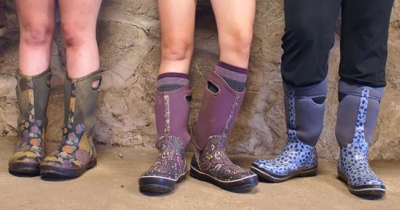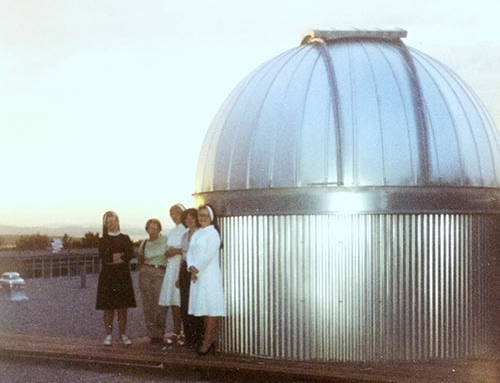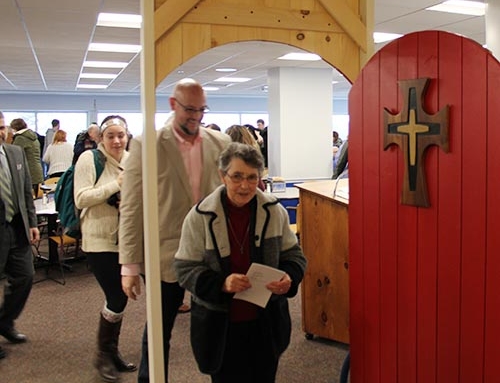 By Kathryn Cody, Social Justice & Leadership Coordinator
By Kathryn Cody, Social Justice & Leadership Coordinator
When we arrived at Mercy Farm in Benson, Vermont, at 9:45 p.m. on a Friday night last October, we had no idea what would be in store for us. Graciously, Sisters Betty and Mary had waited up for our arrival (far past my bedtime) so that they could orient us to the farmhouse and show us to our rooms. We slept quickly and soundly, after a five-hour drive at the end of a long week of work and school for myself and the four students traveling: Aprille Hibbard ’16, Aliyah Gregory ’17, Nhu Vo ’17, and Ben Poisson ’18.
When we woke the morning following our arrival we were greeted by freshly brewed coffee and a spread of breakfast foods to choose from. We had the pleasure of meeting and getting to know Sr. Betty and Sr. Mary, as well as Sr. Holly (under less exhausted post-drive conditions). The sisters put us to work, and we were soon weeding and turning the raised beds and digging up roots, getting the farm ready for the long winter ahead.
Every fall, students from Saint Joseph’s participate in a social justice-focused experience. These trips always involve some sort of service, but I have to admit, that’s often not the real motivation, or perhaps, the true output. What happens is not just service or physical labor—it’s transformation.So upon learning about Mercy Farm’s focus on spirituality, ecology, and sustainability last spring, I was immediately motivated to find some students who would share in the joy of visiting the farm and learning about their program. We hope to be continually molded and remolded, and through that transformed, and Mercy Farm certainly allowed for just that. We were inspired to pursue action that depends on cooperation rather than competition, and our stay left us questioning, “What would the world be like if we all just took care of one another?”
So often we fall into the mental trap of thinking, If I change my lifestyle, it won’t make much difference, or, Someone else will take care of this problem, or, Everyone else is doing it, so why can’t I?But during our stay at Mercy Farm, we were challenged to look at the earth not as a resource that only exists to satisfy human demands, but as a home to be treasured and respected. We have no right to abuse the earth, yet we continue to do so, every day. This skewed perspective was explained to our group by the sisters: “It’s like glasses we’ve worn for so long that we don’t even know we’re wearing them anymore.”
Through our cleaning and weeding, building, and conversations with the sisters and one another, we were reminded that our lives belong to the whole community, and as long as we live, it is our privilege to do for the community whatever we can. It was a reminder, as Aliyah Gregory ’17 put it, that “helping out in any way possible and enjoying the company of others while serving others” is paramount. This is our purpose, to love and serve one another.
We went to Mercy Farm because it seemed like an amazing opportunity and a natural connection. We stayed because of the hospitality and love that we received and were able to give. And we will always come back to the lessons we learned because of the transformation that has occurred within.



